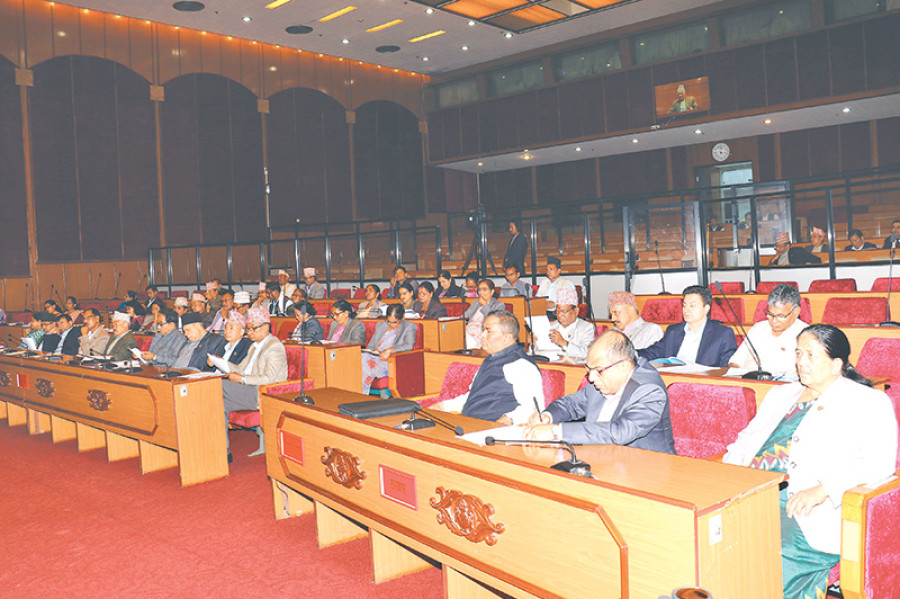National
Parliament passes all bills on basic rights
The 16 bills necessary to guarantee the fundamental rights enshrined in the constitution have passed both the Houses of federal parliament, days before the deadline, through a suspension of rules.
Tika R Pradhan
The 16 bills necessary to guarantee the fundamental rights enshrined in the constitution have passed both the Houses of federal parliament, days before the deadline, through a suspension of rules.
Parliamentary rules such as the 72 hours required to register amendments were reduced to 12 hours so as to meet Tuesday’s deadline for the bills to be authenticated by the President.
Nine of the bills were freshly drafted while seven were prepared by amending necessary provisions in the existing laws to ensure citizens’ fundamental rights.
The National Assembly held three meetings in a row on Sunday while the House of Representatives held a single meeting to endorse the bills.
The third meeting of the Upper House on Sunday endorsed five bills—one related to Individual Privacy, and the next on Public Security (third amendment), which were tabled by Home Minister Ram Bahadur Thapa. The Racial Discrimination and Untouchability (offence and punishment, first amendment) Bill, and bill related to Social Security were tabled by Minister for Federal Affairs and General Administration Lalbabu Pandit. The other bill concerns Compulsory and Free Education.
Earlier, the NA had endorsed seven bills related to fundamental rights. Those included bill related to Safe Motherhood and Reproductive Health Rights; and Public Health Bill presented by Deputy Prime Minister and Minister for Population Upendra Yadav; bill on Employment Rights, and bill on consumer rights.
The bill on Right to Food; bill on Right to Residence, and the Land Bill (seventh amendment) were also endorsed on Sunday. The House of Representatives had passed all the bills to the NA.
The HoR on Sunday endorsed two bills related to Protection of the Victims of Crime and Rights of Children while it had amended bills on Environment Conservation and Rights of Disabled People on Saturday besides two others sent to the NA.
After authentication of the bills by the President, people are expected to rush to the courts seeking implementation of the new legislation.
The government had delayed registration of the bills at the Parliament Secretariat. The delay was also attributed to the China visit of Speaker Krishna Bahadur Mahara, who was on a six-day tour of China beginning September 7.
Amid fears that the laws might not be readied within the timeframe, the House of Representatives had given the respective parliamentary committees a week after September 7 to finalise the bills. The Constitution of Nepal makes it mandatory for the laws to be in place within three years since its promulgation on September 19, 2015. Articles 16 to 46 of the constitution provision fundamental rights.
The laws have to be authenticated by President Bidya Devi Bhandari by September 18. According to NA Secretary Rajendra Phuyal, the federal parliament will present the bills to the President’s Office by Monday evening.




 16.12°C Kathmandu
16.12°C Kathmandu














